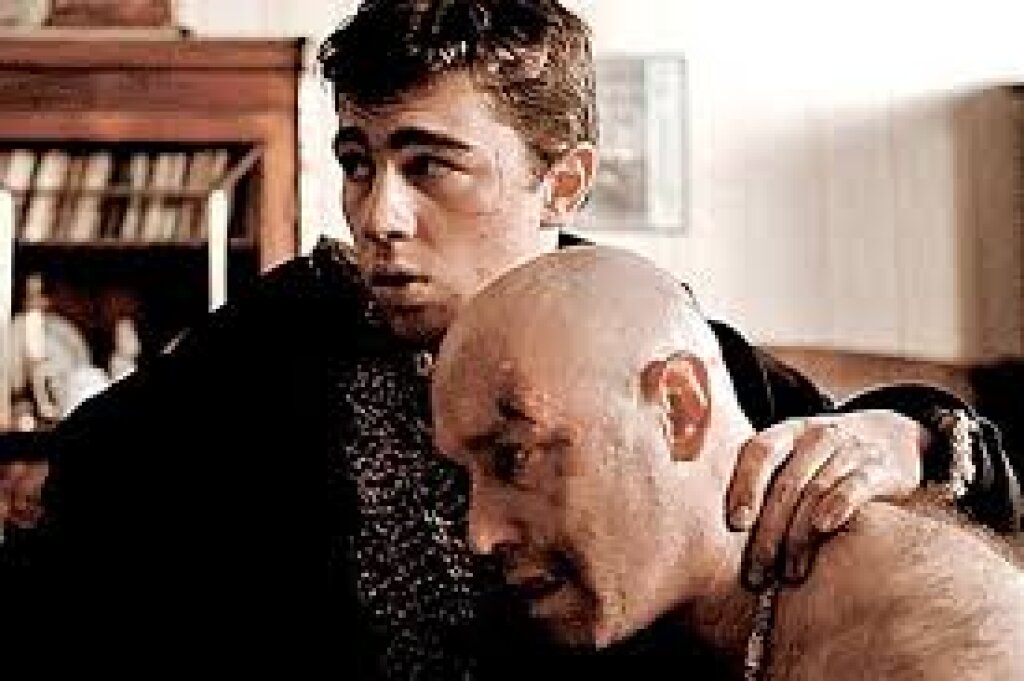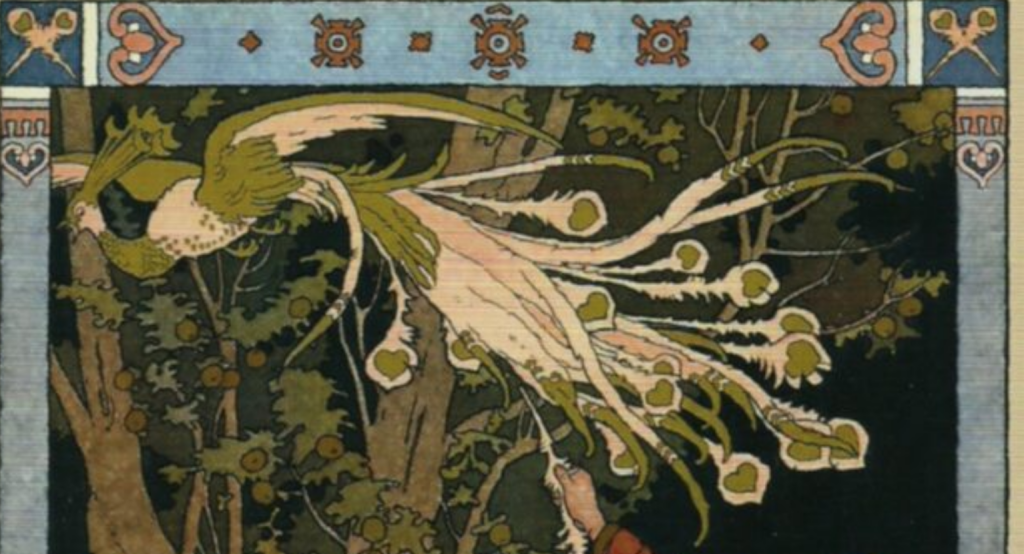This post is the second installment of the Conclusion of Russia’s Alien Nations: The Secret Identities of Post-Socialism, an ongoing feature on All the Russias. It can also be found at russiasaliennations.org. You can also find all the previous entries here.
Aleksei Balabanov’s Brother proved not just to be the sensation of 1997; looking backwards (as Yuri Saprykin just did in a Vedomosti article about Putin’s twenty years in power), we can see that it is the quintessential text of the 1990s. This is not only because it is so visually iconic (though it is that, as “90,” Monetochka’s 2018 Brother-inflected video love letter to the 1990s certainly shows), nor is it simply the result of its unforgettable soundtrack (exquisitely curated by Misha Kozyev). Certainly the gang violence plays a role, since nothing says “Russia in the Nineties” quite like groups of armed thugs shooting at each other. But what really makes Brother emblematic of the 1990s is its protagonist, Danila Bagrov, unforgettably embodied by Sergei Bodrov Jr.
Embodied, yes, but almost uninhabited. As is so often the case with postmodern narratives in Russia, some critics were disturbed by the film's near-total lack of moral framework, and by Danila's own absence of a developed inner life or psychological depth. Danila spends most of the movie tracking down the latest release by his favorite band, Nautilus Pompilus, and his love for the group at times even threatens to interfere with his new profession (i.e., rubbing out his victims). He is fascinated with the latest manifestations of popular culture, while unable to formulate a serious opinion about anything--the closest he can come is a reflexive xenophobia that he feels no need to justify, such as when he says that he is glad his new German acquaintance is not a Jew, since “Евреев как-то не очень [Not big on the Jews]'" (barely an opinion, it is also barely a sentence).[2] Danila is a dangerous mixed metaphor: an empty vessel and a hired gun.
True, Danila has impulses that could (and will) eventually be assembled into something approaching an ideology. Left to his own devices, he will choose to defend the weak from the strong and predatory, especially if the predators are in some way “alien,” such as the Caucasian brutes from central casting who harass innocents on public transportation. At a party, he famously tells a Frenchman that “that America of yours is gonna be toast (kirdyk).” But what is going on in his head?
Danila Bagrov is a clever twist on a familiar type. He is an update of Chance from Jerzy Kosinski’s 1970 novel Being There (unforgettably brought to something resembling life by Peter Sellars in Hal Ashby’s 1979 film); a middle-aged, intellectually impaired gardener who had spent his entire life cloistered in a rich man’s townhouse, the newly-renamed Chauncey Gardner's understanding of the world is mediated entirely be television. As he inadvertently moves up the hierarchy of the D.C. elite, his terse, banal utterances are misinterpreted as wisdom.
Danila is motivated not by television, but by pop music (though he does get extra credit for good taste in bands). But his cluelessness about the ordinary world is almost as profound as that of Chance. The film begins with him wandering onto a movie shoot, ruining a day’s work because he doesn’t understand that this is not the right time to start chatting with the cast. Presumably, he had a broader experience of childhood than did Kosinski’s protagonist, although the initial monologue by his distraught mother suggests both financial and cultural poverty.
Danila’s mother sends him to St. Petersburg to find both his brother and a direction in life. Not long after his arrival, Danila grows disenchanted with the people he finds there. Virtually everyone around him is as empty and rudderless as he is. His brother Viktor is a coward ready to see out Danila at the first opportunity, while the man he works for, “Roundhead” (“Kruglyi") is the very picture of mediocrity. Even against the backdrop of the rough and rude henchmen who do his bidding, Roundhead’s sheer lack of originality is stunning. Every utterance he makes is a pogovorka, that his, a proverb of folk saying, and after he each one he laughs and expects his listener to join in. The fun-loving drug-dealer Kat can barely work up a response to Danila’s announcement of his upcoming departure. Danila’s aforementioned interaction with the Frenchman at the party is emblematic of the complete lack of contact between interlocutors, each of whom in any case has little to offer: the French guy is going on about the music, while Danila is foretelling America’s doom.
Danila himself only shows emotion when talking about his favorite music; when he and a few other gunmen are on a job in an apartment, it turns out that there is a party going on one floor above, where one of the guests is none other than Vyacheslav Butusov, the frontman for Danila’s favorite group. He follows Butusov to the party and smiles as a few of the guests sing and play guitar. But their song isn’t one of Butusov’s complicated lyrical compositions; most of it consists of the young women singing the senseless refrain of “Yeah, yeah, yeah.” When Danila returns to the apartment below and kill the other thugs (for complicated plot reasons that aren’t worth going into at the moment), Danila reassures their hostage, a radio producer, that everything will be ok, and then asks if he can make a tape of the producer’s copy of Nautilus Pompilus’s new album.
Danila is suffering from a common form of dislocation, though it is not precisely the same syndrome that afflicts those around him: he has just returned from his military service in Chechnya. When asked, he says that he did office work, but the marksmanship he soon displays suggest that he is not telling the full story. If this is the case, the development of his lethal talents in the armed forces was not accompanied by any other kind of development whatsoever. The army veteran who resolutely refuses to speak of his military past is an action movie cliché, whose premise is usually the the veteran in question does not want to revisit trauma and horror. But this is not Danila: he is not resolutely refusing; he simply exists in the world as though nothing at all happened. Not only is he not traumatized; he is so limited and affectless that he seems incapable of experiencing trauma at all. In this respect, he is the perfect soldier: point him in the right direction and he will point and shoot without thinking twice.
Danila has returned home as a result of what the armed forces call “demobilization,” a moment so common to the average (post-) Soviet man’s life that it has its own slang term (dembel’). It is particularly apt in Danila’s case, because he needs some kind of external stimulus to get him moving. In fact, Brother is a highly allegorical film, in the sense that Maureen Quilligan approaches allegory in her book The Language of Allegory: not “saying one thing and meaning another,” but exploiting the polysemy inherent in the words used in the text. Just as the hero of Pilgrim’s Progress can lose his way on a hill called “Error” (implying both “mistake” and “deviation from the proper path”), Brother is the story of someone literally trying to find his way after being “demobilized” and set adrift. As most readers of this blog will know, Russian verbs are divided into two types, “unidirectional” and “multidirectional”, a grammatical distinction that, for my current purposes, is fairly self-explanatory. The first Brother film sets Danila on a multidirectional verbal journey, from shop to shop, from hit to hit, wandering in and out of situations that he barely understands.
Most of the film takes place in St. Petersburg, where Danila’s mother tells him to seek out his brother Viktor, and Danila’s adventures send him back and forth throughout the city until the plot is exhausted. Outwardly passive, Danila is quite easy to set in motion, but also easy to distract. His trajectory is vaguely picaresque, in that he comfortably transitions from one minor adventure to another, but Danila is no picaro; despite his facility with weapons and murder, there is nothing roguish about him. He merely accumulates experiences while only minimally processing them,. Like Deleuze and Guattari’s connective synthesis from Anti-Oedipus, Danila’s is a world of continual flow (“and…and…”), but never rises to the level of the subjunctive synthesis, the process in which subjectivity is formed.
What could be more indicative of the film’s approach to identity than its name: “Brother.” Who, exactly, is the brother? It could be Viktor, or it could be Danila himself, Viktor’s brother. But it is also simply a common form of address in Danila’s world, though Danila rejects it when applied to him by the Caucasian thugs on the tram (“You’re not my brother, you black-assed scum”). Metaphorically, brotherhood is a lofty concept, though in reality, Danila’s brother lets him down. In order to be a brother, one must have a brother. On the one hand, this suggests a sense of identity that is rooted in relationships and group belonging; on the other hand, it is an identity that is entirely relational, and therefore has no fixed, internal meaning.
Thus Danila cannot build a sense of self while standing still. He has to meet the people who will help him define himself. By the end of the film he decides to go to Moscow, where he hopes to find less “weakness” among the people he meets. At this point, identity for Danila is not a status but a vector, and all that’s left to him is to set off in a new direction.
Next: Brother 2: Son of Brother



